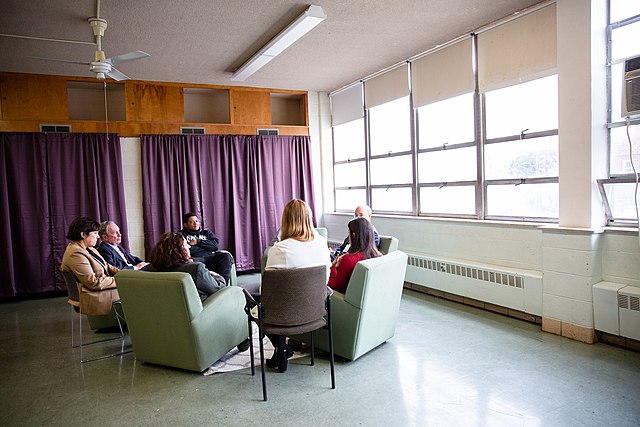
Published August 24, 2022
Three dominant U.S. pharmacy chains, CVS, Walgreens, and Walmart, recently lost a $650 million lawsuit brought by just two northeastern Ohio counties grappling with the ongoing opioid epidemic. Large as this sum is, it is dwarfed by the $26 billion offered by four major drug distributors last year to settle over 4,000 outstanding lawsuits for their role in encouraging addiction.
There was a time when conservatives might have cast corporations as the victims in this narrative—innocent scapegoats being bilked for cash by greedy and shameless bureaucrats and lawyers who refuse to hold individuals responsible for their own actions. But as the U.S. opioid epidemic stretches into its third decade, with a death toll topping 50,000 a year and with incalculable damage to lives and communities, the old mantras about “personal responsibility” are starting to wear thin.
In any crisis, we should be wary of searching for convenient scapegoats and resist the impulse to think that justice has been served just because someone has been punished. In the present case, the pharmacies have argued vociferously that doctors are responsible for prescribing appropriate drugs for their patients, and their job is simply to fill those prescriptions. Asking too many questions, Walmart objected, would “interfere with the doctor-patient relationship.” Moreover, most opioid overdoses are related to non-prescription drugs acquired illegally. Like the last one, the latest iteration of the war on drugs is a devilishly complicated business, with plenty of victims and villains but little clarity about which is which—or where to turn.
Nonetheless, problems like the current opioid crisis should compel conservatives to rethink their sometimes facile commitment to the singular creed of individual responsibility. It is true that we live in a society that encourages all of us to think of ourselves as victims, oppressed by circumstances and structures beyond our control. This is morally and politically debilitating, rendering impossible the repentance, reconciliation, and struggle toward virtue that is essential both to the Christian life and to a thriving political community. No account of the opioid epidemic would be complete without a record of the disastrous decisions of individual users and their family members, and no solution will be effective without helping individuals reckon with these mistakes.
Still, when it comes to addiction, it’s obviously not as simple as saying, “Well, just don’t do drugs.” Even when the initial decision to take an addictive substance is entirely one’s own (which it rarely is), the ongoing bondage that results is often aided and abetted by the enabling or abdicating actions of myriads of others: family members, pharmacists, doctors, drug distributors, drug manufacturers, and exporters.
During the nineteenth century, Britain infamously profited—both politically and economically—by exporting opium to China to fuel addiction there. Today, the flow has been reversed, with China providing the majority of the fentanyl flooding the United States over the last decade. Sometimes these other actors are seeking, quite cynically, to profit by destroying the lives of others. Just as often, they shrug their shoulders and say, “Not my problem; I’m just doing a job.” None of us is ever “just doing a job”—whether we work in medicine or marketing, our job is ultimately to love our neighbor, not supply him with the tools to ruin his life.
Of course, what we call “addiction” is simply a more vivid manifestation of sin in general. Sin is always an enslaving habit, one that might give momentary pleasure but ultimately destroys body and soul. And sin is always the responsibility of each individual, but sometimes not just that individual, which is why Christ takes so seriously the sin of causing others to sin (Matthew 18:6).
To be sure, not every sin can or should be prosecuted as a crime. It is a delicate business determining when, where, and how to hold responsible the bad actors in society who profit from the moral enslavement of others. Still, on a range of issues, from opioids to pornography to social media, we have turned a blind eye for far too long to the systems of exploitation proliferating in our society. We should all note recent court cases that suggest a day of reckoning is at hand.
Brad Littlejohn, Ph.D., is a Fellow in EPPC’s Evangelicals in Civic Life Program, where his work focuses on helping public leaders understand the intellectual and historical foundations of our current breakdown of public trust, social cohesion, and sound governance. His research investigates shifting understandings of the nature of freedom and authority, and how a more full-orbed conception of freedom, rooted in the Christian tradition, can inform policy that respects both the dignity of the individual and the urgency of the common good. He also serves as President of the Davenant Institute.
Image from Governor Tom Wolf on Wikimedia via Creative Commons 2.0
Brad Littlejohn, Ph.D., is a Fellow in EPPC’s Evangelicals in Civic Life Program, where his work focuses on helping public leaders understand the intellectual and historical foundations of our current breakdown of public trust, social cohesion, and sound governance. His research investigates shifting understandings of the nature of freedom and authority, and how a more full-orbed conception of freedom, rooted in the Christian tradition, can inform policy that respects both the dignity of the individual and the urgency of the common good. He also serves as President of the Davenant Institute.










